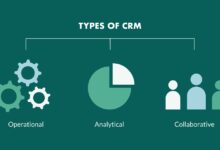AI-Powered CRM Software: 7 Revolutionary Benefits You Can’t Ignore
Imagine a CRM that doesn’t just store customer data but actually thinks, predicts, and acts. Welcome to the era of AI-powered CRM software—where automation meets intelligence to transform how businesses connect with customers.
What Is AI-Powered CRM Software?

AI-powered CRM software integrates artificial intelligence technologies into customer relationship management systems to automate tasks, analyze data, and deliver actionable insights in real time. Unlike traditional CRM platforms that rely heavily on manual input and static reporting, AI-enhanced systems learn from interactions, adapt to patterns, and anticipate customer needs.
Core Components of AI in CRM
The integration of AI into CRM is not a single feature but a suite of intelligent capabilities working together. These include natural language processing (NLP), machine learning (ML), predictive analytics, and robotic process automation (RPA). Together, they enable the CRM to understand human language, recognize behavioral trends, and automate repetitive workflows.
- Natural Language Processing (NLP) allows the system to interpret emails, chat messages, and voice calls.
- Machine Learning models improve over time by analyzing historical customer interactions.
- Predictive Analytics forecasts future behaviors such as churn risk or purchase likelihood.
These components are what make modern CRM platforms like Salesforce Einstein or Microsoft Dynamics 365 AI stand out in the market.
How AI-Powered CRM Differs from Traditional CRM
Traditional CRM systems are primarily data repositories. They track customer information, sales pipelines, and support tickets but require users to manually extract insights. In contrast, AI-powered CRM software acts as a proactive assistant. It surfaces recommendations, prioritizes leads, and even drafts responses.
“AI doesn’t replace humans in CRM—it amplifies their ability to serve customers better.” — Gartner Research, 2023
For example, while a legacy CRM might show that a customer hasn’t logged in for 30 days, an AI-driven system will predict the likelihood of churn and suggest personalized re-engagement strategies—such as a discount offer or a check-in call—based on past behavior and sentiment analysis.
7 Key Benefits of AI-Powered CRM Software
The shift to AI-powered CRM software isn’t just about technological novelty—it delivers measurable business outcomes. From boosting sales efficiency to enhancing customer satisfaction, the advantages are transformative. Let’s explore the seven most impactful benefits.
1. Enhanced Lead Scoring and Prioritization
One of the biggest challenges in sales is identifying which leads are most likely to convert. AI-powered CRM software analyzes thousands of data points—such as website visits, email engagement, social media activity, and past purchases—to assign dynamic lead scores.
- Leads are ranked in real time based on behavioral signals.
- Sales teams receive prioritized lists, reducing time spent on low-probability prospects.
- Machine learning refines scoring models as more data becomes available.
This level of precision means sales reps can focus their energy where it matters most. According to a McKinsey report, companies using AI for lead scoring see up to a 50% increase in conversion rates.
2. Smarter Sales Forecasting
Accurate sales forecasting is critical for resource planning, inventory management, and investor reporting. AI-powered CRM software goes beyond simple trend analysis by incorporating external factors like market conditions, seasonality, and even weather patterns.
For instance, a retail company using AI-enhanced forecasting in its CRM can predict spikes in demand before holidays and adjust staffing and stock levels accordingly. The system continuously learns from forecast accuracy, improving predictions over time.
“AI-driven forecasting reduces forecast error by up to 50% compared to traditional methods.” — Harvard Business Review
Platforms like Zoho CRM with Zia AI offer built-in forecasting tools that visualize pipeline health and highlight potential risks.
3. Personalized Customer Experiences at Scale
Customers today expect personalized interactions—but doing this manually at scale is impossible. AI-powered CRM software enables hyper-personalization by analyzing customer preferences, purchase history, and communication styles.
- AI suggests personalized product recommendations during live chats.
- Email campaigns are dynamically tailored based on user behavior.
- Customer service agents receive real-time prompts on how to best engage each client.
For example, if a customer frequently buys eco-friendly products, the CRM can automatically tag them for green marketing campaigns and recommend relevant content. This level of personalization increases customer loyalty and average order value.
4. Automated Routine Tasks
Sales and support teams waste hours on repetitive tasks like data entry, follow-up reminders, and meeting scheduling. AI-powered CRM software automates these processes, freeing up valuable time.
Features include:
- Automatic logging of emails and calls into the CRM.
- AI-generated meeting summaries and action items.
- Smart follow-up reminders based on customer responsiveness.
Tools like HubSpot’s AI-powered CRM use automation to reduce administrative workload by up to 40%, allowing teams to focus on relationship-building.
5. Real-Time Sentiment Analysis
Understanding how customers feel during interactions is crucial. AI-powered CRM software uses NLP to analyze the tone and sentiment of emails, chat transcripts, and voice calls in real time.
For example, if a support agent is dealing with an increasingly frustrated customer, the CRM can alert them and suggest de-escalation techniques. It can also flag negative sentiment for managerial review or trigger automated satisfaction surveys.
“Sentiment analysis helps companies detect dissatisfaction before it leads to churn.” — Forrester Research
This proactive approach improves customer retention and enhances service quality across touchpoints.
6. Predictive Customer Service
Instead of waiting for customers to report issues, AI-powered CRM software anticipates problems before they occur. By analyzing usage patterns, support history, and product telemetry, the system can predict when a customer might need help.
- A SaaS company might detect unusual login patterns and proactively offer onboarding assistance.
- An e-commerce platform could identify delivery delays and send preemptive updates with compensation offers.
- AI can trigger automated check-ins after a major purchase to ensure satisfaction.
This shift from reactive to predictive service builds trust and reduces support ticket volume.
7. Data-Driven Decision Making Across Teams
AI-powered CRM software breaks down silos by providing unified insights across sales, marketing, and customer service. Executives gain access to dashboards that show real-time KPIs, customer health scores, and trend forecasts.
For instance, marketing can see which campaigns generate the highest-quality leads, while customer service can identify common pain points that inform product development. This cross-functional visibility leads to more aligned strategies and faster decision-making.
According to a 2023 IBM study, organizations using AI in CRM report a 35% improvement in interdepartmental collaboration.
Top AI-Powered CRM Software Platforms in 2024
With so many options on the market, choosing the right AI-powered CRM software can be overwhelming. Here’s a breakdown of the leading platforms, their AI capabilities, and ideal use cases.
Salesforce Einstein AI
Salesforce remains the market leader in CRM, and its Einstein AI suite adds powerful intelligence across sales, service, and marketing clouds.
- Einstein Lead Scoring ranks prospects based on engagement and demographics.
- Einstein Activity Capture auto-logs emails and events.
- Einstein Bots handle common customer queries in service workflows.
Best for: Large enterprises needing deep customization and scalability. Learn more at Salesforce Einstein.
Microsoft Dynamics 365 + AI Builder
Microsoft’s CRM solution integrates seamlessly with Office 365 and Azure AI, making it ideal for organizations already in the Microsoft ecosystem.
- AI Builder enables no-code automation of forms, workflows, and predictions.
- Customer Service Insights analyze call center data for trends.
- LinkedIn Sales Navigator integration enhances lead intelligence.
Best for: Mid to large businesses using Microsoft 365. Explore at Microsoft Dynamics AI.
Zoho CRM with Zia AI
Zoho offers one of the most affordable AI-powered CRM solutions, packed with smart features for small and medium businesses.
- Zia AI provides voice-assisted search, sentiment analysis, and sales predictions.
- SmartRules automate follow-ups and task assignments.
- Forecasting tools use ML to predict revenue with high accuracy.
Best for: SMBs looking for cost-effective AI capabilities. Visit Zoho CRM AI Features.
HubSpot CRM with AI Tools
HubSpot combines user-friendliness with robust AI features, especially in marketing and sales automation.
- AI-powered email writer generates personalized outreach messages.
- Meeting insights summarize calls and extract action items.
- Content suggestions help marketers create high-performing campaigns.
Best for: Marketing-focused teams and growing businesses. Check out HubSpot AI.
Pipedrive with AI Features
Pipedrive is known for its visual sales pipeline, and its recent AI enhancements make it even more powerful for sales-driven organizations.
- AI Sales Assistant automates data entry and follow-up scheduling.
- Smart Contact Data enriches leads with company info and social profiles.
- Forecasting tools use historical data to project future deals.
Best for: Sales teams prioritizing pipeline management. Learn more at Pipedrive AI.
How AI-Powered CRM Software Improves Sales Efficiency
Sales teams are under constant pressure to do more with less. AI-powered CRM software acts as a force multiplier by streamlining workflows, reducing manual effort, and increasing win rates.
Automated Data Entry and Enrichment
Sales reps spend nearly 34% of their time on administrative tasks, according to CSO Insights. AI-powered CRM software eliminates much of this burden by automatically capturing and enriching contact data.
- Emails and calendar events are synced and logged without manual input.
- AI pulls in company details, job titles, and social profiles from public sources.
- Duplicate records are detected and merged automatically.
This ensures data accuracy while giving reps more time to sell.
Intelligent Next-Best-Action Recommendations
One of the most powerful features of AI-powered CRM software is its ability to recommend the next best action for each lead. Whether it’s sending a follow-up email, offering a demo, or applying a discount, the system uses predictive modeling to suggest the most effective step.
“Next-best-action engines increase sales productivity by 20-30%.” — Salesforce State of Sales Report
These recommendations are based on historical success patterns, customer behavior, and deal stage, ensuring that every interaction moves the sale forward.
Real-Time Coaching for Sales Reps
AI doesn’t just help with logistics—it also improves performance. Some CRM platforms offer real-time coaching during calls, analyzing tone, pace, and keyword usage to guide reps toward better outcomes.
- AI flags when a rep is talking too much versus listening.
- Sentiment analysis detects customer disengagement.
- Suggestions pop up for objection handling or closing techniques.
This instant feedback loop accelerates onboarding and improves win rates across the team.
AI-Powered CRM Software in Customer Service
Customer service is another area where AI-powered CRM software delivers exceptional value. By combining automation with deep insights, it enables faster, more empathetic, and proactive support.
AI Chatbots and Virtual Assistants
AI-powered chatbots are now standard in modern CRM platforms. They handle routine inquiries—like order status, returns, or FAQs—24/7, reducing wait times and agent workload.
- Chatbots learn from past interactions to improve responses.
- They escalate complex issues to human agents with full context.
- Integration with CRM ensures bots have access to customer history.
For example, ServiceNow’s AI chatbot reduces ticket resolution time by 40%.
Sentiment-Driven Support Routing
Not all customers should be treated the same—especially when emotions run high. AI-powered CRM software analyzes sentiment to route urgent or frustrated customers to senior agents or specialized teams.
This intelligent routing ensures that high-risk interactions receive immediate attention, minimizing churn and improving satisfaction scores.
“Emotion-aware routing improves first-contact resolution by 25%.” — Zendesk Customer Experience Trends Report
Self-Service and Knowledge Base Optimization
AI enhances self-service portals by understanding natural language queries and directing users to the most relevant articles. It also identifies gaps in the knowledge base by analyzing unresolved queries.
- AI suggests new articles based on frequent unanswered questions.
- Search results are ranked by relevance and past success.
- Users get personalized help based on their profile and history.
This reduces support volume while empowering customers to find answers independently.
Challenges and Limitations of AI-Powered CRM Software
Despite its many advantages, AI-powered CRM software is not without challenges. Organizations must navigate data privacy, implementation complexity, and user adoption to fully realize its potential.
Data Quality and Integration Issues
AI models are only as good as the data they’re trained on. Poor data quality—such as incomplete records, duplicates, or outdated information—can lead to inaccurate predictions and misguided recommendations.
- Organizations must invest in data cleansing and governance.
- Integrating AI CRM with legacy systems can be technically challenging.
- Real-time data sync across platforms is essential for accuracy.
Without clean, unified data, even the most advanced AI will underperform.
Privacy and Ethical Concerns
AI-powered CRM software collects and analyzes vast amounts of personal data, raising concerns about privacy and compliance with regulations like GDPR and CCPA.
- Transparency in data usage is critical to maintain customer trust.
- AI bias—such as favoring certain demographics in lead scoring—must be monitored and corrected.
- Companies need clear policies on AI decision-making and human oversight.
“Ethical AI use in CRM builds long-term customer loyalty.” — MIT Sloan Management Review
User Adoption and Training
Even the best AI-powered CRM software will fail if users don’t trust or understand it. Sales and service teams may resist AI recommendations, fearing job displacement or loss of control.
- Comprehensive training programs are essential.
- Leaders should emphasize AI as a tool to augment, not replace, human skills.
- Change management strategies help ease the transition.
Organizations that invest in user enablement see faster ROI and higher engagement with AI features.
Future Trends in AI-Powered CRM Software
The evolution of AI-powered CRM software is far from over. Emerging technologies and shifting customer expectations will continue to shape its development in the coming years.
Hyper-Personalization Through Generative AI
Generative AI is set to revolutionize CRM by enabling fully personalized content creation. Imagine a system that writes custom email sequences, generates product descriptions, or even creates video messages tailored to individual customers.
- AI will draft outreach messages in the user’s voice and tone.
- Dynamic landing pages will adapt in real time based on visitor profiles.
- Personalized offers will be generated on the fly using behavioral data.
Platforms like Oracle CX with Generative AI are already experimenting with these capabilities.
Voice-Activated CRM Assistants
Just as Siri and Alexa have changed how we interact with devices, voice-activated CRM assistants will transform how teams interact with customer data.
- Sales reps could ask, “What’s my top priority today?” and get a verbal summary.
- Agents could update records hands-free during calls.
- Managers could request forecasts using natural speech.
This shift will make CRM systems more accessible and intuitive, especially in fast-paced environments.
Emotion AI and Behavioral Prediction
Future AI-powered CRM software will go beyond text and numbers to interpret emotions through voice tone, facial expressions (in video calls), and typing patterns.
- Emotion AI will detect frustration, excitement, or hesitation in real time.
- Behavioral prediction models will anticipate customer moves before they happen.
- Systems will adapt communication styles based on emotional cues.
This level of emotional intelligence will redefine customer empathy in digital interactions.
What is AI-powered CRM software?
AI-powered CRM software integrates artificial intelligence into customer relationship management systems to automate tasks, analyze data, and deliver intelligent insights. It enhances lead scoring, personalization, forecasting, and customer service through machine learning and natural language processing.
How does AI improve CRM?
AI improves CRM by automating repetitive tasks, predicting customer behavior, personalizing interactions, and providing real-time recommendations. It reduces manual work, increases sales efficiency, and enhances customer satisfaction through data-driven insights.
Is AI in CRM safe for customer data?
Yes, when implemented with proper security and compliance measures. Reputable AI-powered CRM software providers adhere to data protection regulations like GDPR and CCPA. However, organizations must ensure transparency, obtain consent, and monitor for bias to maintain trust.
Which CRM has the best AI features?
Salesforce Einstein, Microsoft Dynamics 365, and Zoho CRM are among the leaders in AI capabilities. The best choice depends on business size, industry, and integration needs. Salesforce excels in enterprise scalability, while Zoho offers strong AI at an affordable price.
Can small businesses use AI-powered CRM software?
Absolutely. Many AI-powered CRM platforms, such as HubSpot and Zoho, offer scalable pricing and user-friendly interfaces ideal for small businesses. These tools help SMBs compete with larger companies by automating sales, marketing, and service functions.
AI-powered CRM software is no longer a futuristic concept—it’s a business imperative. From smarter sales forecasting to predictive customer service, the integration of AI into CRM systems is transforming how companies engage with their customers. While challenges like data quality and user adoption remain, the benefits far outweigh the risks for organizations willing to embrace change. As AI continues to evolve, the future of CRM will be more intelligent, intuitive, and impactful than ever. The time to adopt is now.
Recommended for you 👇
Further Reading:


